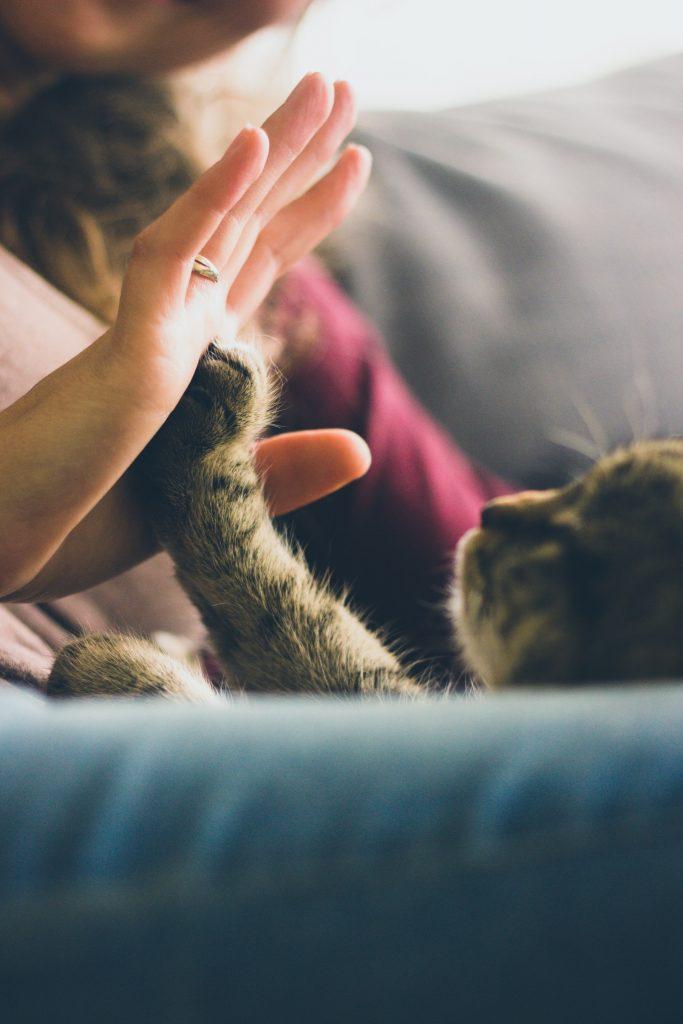Coping With Loss: Tips to Help You Heal.
Coping with loss is always hard. Whether it is a partner, parent, friend, or beloved pet, loss of any kind makes us realize the fragile nature of life. No matter what type of tragedy you have suffered, coping with loss is challenging, and there is no right or wrong way to grieve.

While coping with loss is a long-term journey that is uniquely yours, understanding the stages of grief can help you heal and push you through the darkness back to the light.
This article will talk about coping with loss and provide you with tips to help you heal.
What is Grief?
Grief is a natural human response to loss. Coping with loss is not an easy task, no matter who has passed, whether it is a person or a pet. When someone you love is taken away from you, the pain can be almost overwhelming. When coping with loss, you will experience various difficult and unexpected emotions, from shock and anger to disbelief, guilt, and profound sadness. Grief is often a rollercoaster of emotions that take their toll on your physical and mental health.
The pain and sadness that accompany grief are genuine. These feelings can impact your physical and mental health and leave you feeling lost and alone. Grief can affect your ability to eat, sleep, think, and function in day-to-day life.
Coping with loss is a distinct experience and one of life’s most significant challenges. While coping with loss is often associated with the death of a loved one, many situations can cause the same type of grief in varying forms, such as;
Causes of Grief:
- Divorce
- Death
- Loss of health
- Losing your job
- Losing your financial stability
- Miscarriage
- Retirement
- Death of a pet
- Loss of a dream or goal
- The end of a friendship
- Loss of safety and security
- Losing your family home
Even the most seemingly slight losses in life may trigger grief, and all are equally valid. Whatever the type of loss, it is distinct to you and is deeply personal. Never feel embarrassed or ashamed about how you feel, and never think that you should or need to feel, think, or behave a certain way. If the situation was significant to your life, then the way you feel is significant as well, and it is normal to grieve.
No matter the cause of the grief you are feeling, there are healthy ways to cope with loss and things that can ease the pain to help you heal.
“I recently lost my cat and I was devastated. I walked around as if I was a zombie for weeks trying to work through my feelings of guilt and sadness. While many people felt it was ‘just a cat,’ to me it was so much more than that! Losing my cat stirred up deep-rooted feelings that I had ignored in life and made me realize that we are here for a limited time only. This loss, while insignificant to some, was a huge moment in my life, and it was deeply personal”
-Amanda
Coping with loss is a process.
Grieving is an individual process. No two people will cope with loss in the same way, and there is no set timeline for grief. Additionally, there is no right or wrong way to grieve the loss of a loved one or any other upsetting event in your life. Just because others think you should be okay does not mean you will be. Healing takes time and differs for everyone.
Many people say that the loss of a loved one is life-changing. You often hear people say that ‘life will never be the same again.’ This is not wrong. In fact, after the passing of a loved one, life often changes forever, and change is hard even under the best circumstances.
Myths About Coping With Loss
If you keep busy, you will feel better faster.
While keeping busy is a good idea, it will not make the process faster. Ignoring your feelings by filling your time with other things may actually extend the grief process. It is hard to face our feelings head-on when coping with loss, but feeling your feelings is part of the grieving process and is the only way to heal.

If you are not crying, then you are not really sad.
There is a belief that tears signify sadness. This is just not true. There are many different ways of expressing grief, but none can be measured. The amount of tears a person sheds tells us nothing about their level of grief.
You need to forget about the loss and move on.
Far too often, people coping with loss hear that they need to let it go and move on. These words are incredibly unhelpful and should be avoided at all costs. Saying that they need to forget is like telling them to forget their identity. The loss is a part of their person. It is not something that you forget.
Coping With Loss: 4 Tips For Surviving The Grieving Process.
Acknowledge the pain you are feeling.
The first step to healing when you are coping with loss is acknowledging the pain you feel. While it may be hard to admit, a big part of dealing with a loss is dealing with the pain that comes with it. Grief can cause pain that is both profoundly physical and emotional. Being prepared for this pain and acknowledging that it exists as part of your process is a key to healing.
Accept and embrace unexpected emotions,
When coping with loss, acknowledging the way that you feel is vital. Suppose you are sad, angry, or scared. Accept these feelings as part of your process and face them head-on. Do not be afraid to feel your emotions as they arise, and be prepared for some unexpected ones along the way.
When my father died I was not prepared for the emotions that arose. The memories, the missed opportunities, the raw sadness were a lot to deal with and it left me feeling lost and overwhelmed for a very long time. I would hear a song on the radio months after his death and I would burst into tears, or I would see a family walking down the street and feel deep-rooted anger. It was a rollercoaster ride that I never asked to be on and it was emotionally draining at times.
– Sarah
Understand that your process is uniquely your own.
The process of coping with loss is unique to you. Do not measure your feelings based on someone else’s beliefs. You may not be okay in a few months, you may still feel sad in a few years, and that is okay. Your grief is a process that is distinct to you and you alone.
Seek support.
If you find that the grief you feel is too much to bear or the sadness in your soul seems far too deep to tackle on your own, do not hesitate to seek outside help. Many support groups (both online and in-person) can help you cope with the loss you are feeling. You do not have to do this alone.
Stages of”Grief:
There are said to be 5 Stages of Grief. These stages were created by Elisabeth Kübler-Ross in 1969 and are still thought to be valid today.
5 Stages Of Grief:
Denial: “This can’t be happening to me.”
Anger: “Why is this happening? Who is to blame?”
Bargaining: “Make this not happen, and in return, I will ____.”
Depression: “I’m too sad to do anything.”
Acceptance: “I’m at peace with what happened.”
The reactions listed above are natural. They are part of the grieving process, and many experience them while coping with loss. Some stages may take you longer to overcome, while others may be skipped entirely.

Measuring Grief is not an option:
The way you work through these stages is not a measurement of coping with loss. These stages show that you are not alone in your feelings and remind you that grief is a natural, universal process.
The stages of grief listed above may not appear in a specific order. The stages of grief are not a rigid framework. Instead, they will differ from person to person. You may feel denial for a short period or not at all, feel anger for a long time, and bargain for years before resting on acceptance. Again, the process of coping with loss is unique to you and cannot be measured no matter how hard you try. Some may experience all stages, and others, only a few. Whatever stage you are in, acceptance of the process is the key to seeing it through.
Symptoms of Grief:
Although loss will affect everyone differently, there are common characteristics of grief. You must have a solid understanding of grief to begin coping with loss. When coping with loss, you may feel detached or numb to the world around you. Remember, almost anything that you feel is normal in the early days, and no one can control what you feel or think following a tragedy.
Common Emotional Symptoms When Coping With Loss:
Shock and disbelief:
Feelings of profound sadness are normal after any traumatic event. It can be hard to accept the passing of a loved person/pet, and you may not feel like the situation is real. These feelings are entirely normal. Furthermore, you may feel like the person will show up any moment, or you may picture them walking through the door with a crazy explanation or wild story. These thoughts and feelings are normal and even expected when coping with loss.
Sadness:
A deep feeling of sadness almost always follows any type of loss. This is probably one of the most universal experiences of grief that exists. You may experience feelings of despair, emptiness, yearning, and loneliness. You may cry a lot or not at all, and you may feel emotionally drained or unstable.
Guilt:
Guilt is another emotion that many people feel following the loss of a loved one. You may discover that you have regrets about things that you did or did not do while the person/pet was still here. Perhaps you feel guilty for feeling relieved about their passing if the person was suffering. You may even feel guilty for not doing more, or not doing something different that could have or may have prevented the loss. This is normal. Guilt about the death of someone close to you is one of the ways that our minds handle coping with the loss.
Fear:
You may find that there is fear in the aftermath of loss. Any significant loss can trigger a plethora of fears that are festering within our minds. Fear for our health, fear of the unknown, and fear of the future often arise while coping with loss. Address these fears as they are valid to the healing process.
Anger:
Another common emotion while coping with loss is a feeling of anger. You may feel angry at the person who passed, or angry with yourself. Even when the loss was not preventable or was a freak accident, there is often anger. You may seek to place blame on someone for your loss in hopes of finding justice for what you are going through. Again, this is normal.
Physical Symptoms of Grief:
While we often see grief as an emotional process, there are many physical symptoms that can manifest when we are coping with loss. Physical symptoms of grief include,
- Fatigue
- Nausea or illness
- Aches, pains, and a general feeling of being unwell.
- Weight-loss or weight gain
- Trouble sleeping and restlessness
- Lowered immunity
How to cope while coping with loss:
There are many different types of grief and each will present in a way that is unique to you. With this in mind, it is essential that you place priority on yourself and your wellbeing following any type of loss.
Turn to friends and family for support, and do not be afraid to reach out in the community if you need someone to talk to. The process of coping with loss is complex, and while no one can truly understand what you are going through, there are many others out there that have been through what you are facing right now. Sharing the burden of your loss with others can often ease the emotional turmoil that you are feeling within yourself.
While you may want to withdraw and avoid others, talking about the way you feel will ease your pain. Let friends and family help you along your healing journey, that is what they are there for. Do not be afraid to ask for help or tell your loved ones that you are not coping with loss well. People want to help one another in any way that they can, but if they do not know that help is needed they are not able to provide it to you.
People often appear awkward when trying to comfort someone who has suffered a loss. Understand this, and respect that they are making an effort. The initial awkwardness will wear off and they will become easier to talk to with time. Do not take this awkwardness personally, it is the situation, not the person that is causing it.
Seeking Support While Coping With Loss:
Seek support if coping with loss starts to become too much for you to handle. A quick google search will provide you with information relevant to your area and arm you with a list of services you can contact if needed. Although grief is a personal process that is uniquely yours, it is not something that you need to go through alone. Reach out and find support.
Until Next Time,
Stay Safe.